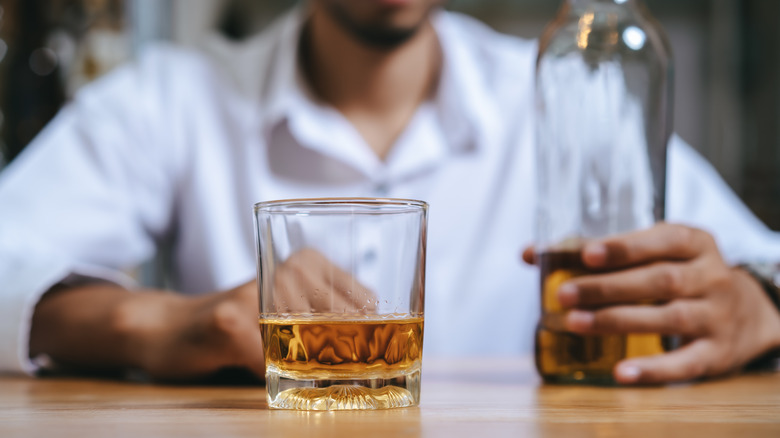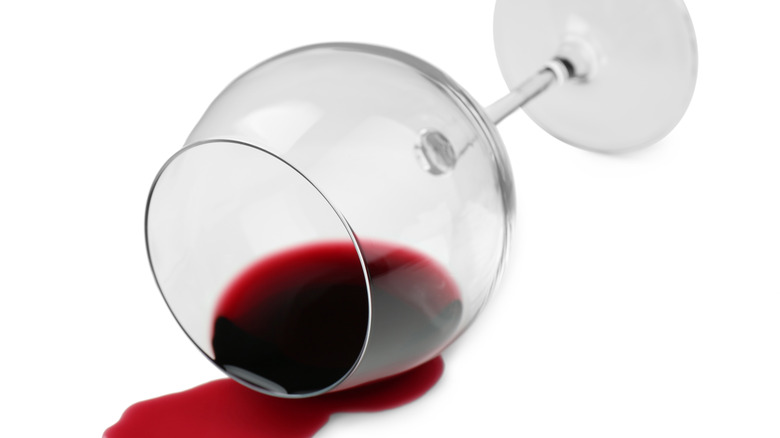Doctors Are Seriously Concerned With Changing Drinking Habits
When it comes to alcohol use in the United States, the message is somewhat of a mixed one. On the one hand, the concept of doing a Dry January or otherwise taking a break from drinking is becoming more widespread, and the term "sober curious" has entered the popular lexicon. In fact, a recent Gallup poll shows that some key numbers are trending in the right direction (unless, of course, you're in the alcoholic beverage industry): only 60% of U.S. adults were drinkers in 2021, down from 65% in 2019, and the average number of drinks consumed per week dropped from 4.0 to 3.6. Better yet, the instance of teen alcohol use hit a record low in 2021, according to a survey reported by USA Today (though that perhaps is related to how much time they spent inside with their parents).
So does that mean that booze is out now, and we're all making merry on mocktails instead? Unfortunately, that does not seem to be the case. CNN Health reports a different set of data that shows that a large number of people –- women, in particular –- may have developed drinking problems during the pandemic.
Pandemic problem drinking may result in long-term damage
It was no secret that during the dark days of quarantine, many of us were drinking more, and earlier, than ever before, perhaps as a response to boredom and loneliness, or perhaps just taking advantage of not having to commute. After all, happy hour can be as happy as you want it to be when you don't have to worry about getting a ride home from the bar. While a study by the Rand Corporation reports that men, in general, actually reduced their level of alcohol consumption during the pandemic and women's consumption rates remained about what they were before COVID hit, it seems that both genders reported a drastic increase in alcohol-related problems.
Even worse news comes from a study published in the journal Hepatology (via the American Association for the Study of Liver Diseases). According to the results, the COVID-prompted spike in alcohol abuse is likely to result in an 8,000 more people dying from liver failure by 2040. In fact, within the next year alone, 100 more people are projected to die due to alcohol-related liver damage, while an additional 2,800 will be diagnosed with liver failure. While those numbers are small compared to the total mortality rate from COVID itself, the fact remains that there is no vaccination people can take to protect them from the effects of alcohol over-consumption.

